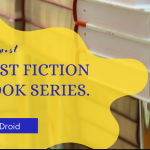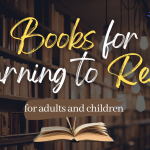Learning how to read books should be a skill because not everyone truly knows how to read books. If you are eager to learn how to read books, then this blog post is for you.
Some people, however, just don’t love reading books, if you are in this category then I have also got something for you. In this article, we discuss strategies that you would love to try and would help you read even if you don’t like reading.
What does this blog post have for you? The benefits of reading, step-by-step guide to learning how To read, and finally, strategies making this reading journey very easy and enjoyable. I am sure you are eager to know what this is all about, Now, let’s get right into this.


Benefits of reading
If you are wondering why you ought to learn how to read. Then, check out these high-quality benefits of reading. The benefits of reading are numerous, but here are a few.
-
Reading can improve your focus and concentration:
Reading can help you to better focus on a task and pay attention for longer periods. Reading requires you to process and retain information, which can help to train your brain to focus and concentrate more effectively.
-
Reading can increase your vocabulary:
Reading is a very great way of increasing your vocabulary. While you read you discover new words, you tend to look for the meaning of these new words, and voila! Another new vocabulary added. And a bigger vocabulary can lead to improved communication, better reading comprehension, and more confidence in your language skills.
-
Reading enhances your analytical skills, and boosts your memory:
Reading makes you better at understanding and analyzing information, and can also help you to remember information more easily. When you read, your brain is actively engaged in the process of understanding the text. This active engagement helps to strengthen your brain’s ability to process and retain information.
-
Reading can reduce stress and anxiety:
Reading is a great way to relax and unwind after a long day, reading can have a calming effect on your mind and body. This is because it has been scientifically proven that reading can lower your heart rate and blood pressure, and it can increase levels of the hormone serotonin. Reading can also help to take your mind off of any worries or concerns you have, and it helps you feel more relaxed and at ease.
-
Reading has also been shown to boost creativity and problem-solving skills:
Reading exposes you to new ideas and concepts which can spark your imagination and inspire you to come up with new ideas of your own. Reading also helps you think outside the box and come up with creative solutions to problems. This is also a good reason why learning how to read is important.
-
Reading can also help you learn about new cultures and expand your worldview:
Reading exposes you to new cultures when you read books that are not just inclined to your culture or its neighboring culture, you get to see how different others behave and there is an expansion on your view of others and your worldview in general.
-
Reading can increase your empathy and understanding of others:
When you read, you put yourself in the shoes of the characters and try to understand their thoughts and feelings. This process of “emotional resonance” (a moment of “I feel your pain”) can help you to develop empathy and understanding for others in real life. It can also help you to better understand and appreciate different perspectives and experiences of life and others.

Step-by-step guide to reading a book
Do you want to start reading but you just don’t know where to start from? Then, this is for you.
Related Posts
Are you learning how to read books and you just want a guide for that? Then this is just for you.
Below are a few guides that would help you while you navigate the world of learning how to read books.
- Find a book that interests you.
- Make yourself comfortable and find a quiet place to read.
- Read the first page or chapter, first, to get a feel for the book.
- Set a goal for how much you want to read each day.
- Take notes or highlight important passages as you read.
- Stop reading when you feel tired or distracted.
- Reflect on what you’ve read and make connections to your own life.
- Try to read a little every day, even if it’s just for 10 minutes.
- Read books that challenge you and stretch your comfort zone.
- Don’t be afraid to re-read sections if you don’t understand them.
- Take breaks to digest and reflect on what you’ve read.
- Ask yourself questions about the book.
- Talk about what you’re reading with friends or family.
- Schedule time for reading every day, even if it’s just 10 minutes.
- Choose a specific place to read, like your favorite chair or a cozy corner of the library.
- Use anything, a pen, a marker, etc to keep track of your place in the book.
- Make reading fun by joining a book club or reading with friends.
- Reward yourself for reaching reading goals, like finishing a chapter or reading a certain number of books.

Strategies for an easy and enjoyable read
Now, let’s talk about creating strategies for an easy and enjoyable read. While you are eager to read and might have already thought of implementing the tips above, take a look at these strategies and implement them too.
-
Reading speed:
When reading you don’t need to read as fast as possible, in fact, it’s better to read at a comfortable pace that allows you to absorb and process the information. If you can try not to rush through the text, and take your time to understand what you’re reading. This is to say don’t read when you are in a rush, so you can understand everything you have time through.
-
Avoid distractions while reading:
Now, this is the hard part but you would want to get it if you intend to get the best out of your book. put away your phone, turn off the TV, and find a quiet place to read. If you’re easily distracted, try using a physical book instead of an e-book. The physicality of the book can help you stay focused on the words on the page.
-
Comprehension:
Remember when you read the aim is to comprehend and understand what exactly you are reading and one way to do this is to read actively. Reading actively means asking questions while you read. You could ask questions of what you just read to yourself or you can ask yourself questions of how what you read is related to you.
-
The SQ3R Reading method:
The SQ3R reading method is “survey, question, read, recite, and review”. This means that you survey the text to get an overview, ask questions about the text, read actively, recite what you’ve learned, and review the text to make sure you’ve understood it.
-
Use context clues:
While reading use the context clues to understand difficult words. Instead of reaching for a dictionary, try to figure out the meaning of the word from the surrounding text. That is, from the sentence or phrase it was used. Often, the context will give you a clue about the word’s meaning.
-
Visualization:
This is my favorite part, mentally visualizing what you read. When you read, try to create mental images of what you’re reading. Visualizing the text can help you to remember and understand it better. For example, if you’re reading about a forest set on fire and raging hard, you could imagine a forest and a fire. This applies even if you are reading a chemistry, physics, biology, etc textbook. This will help you in your quest to learning how to read books.
-
Summarizing:
This means that after you read a section of text, you try to summarize it in your own words. You could also try explaining the text to someone else or writing a summary in your notebook. This will help you to make sure you’ve understood the text.
-
Rereading:
Rereading can help you to improve your comprehension. Going back and rereading difficult sections can help you to grasp the meaning better.
-
Note-taking:
This is the final strategy. Note-taking can help you to remember and understand the text better. You can take notes on a separate piece of paper, a separate notebook, or even in the margins of your book. You can also use different symbols or colors from your pen or highlighter to highlight important information. This is a good strategy while learning how to read books.
Conclusion
Learning how to read a book might seem like a difficult approach but trust me, you would want to do this if you have plans to evolve, develop, and become a great person.
This blog post has you in mind if you struggle to read, as we have listed the benefits of reading, tips on how to read, and strategies to make reading enjoyable and easy for you. I expect that after reading this article you will be more confident about reading.
Do let me know if you would start reading books after you have gone through this article on learning how to read books and also let me know if the strategies and tips work for you.

















